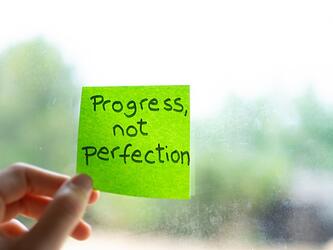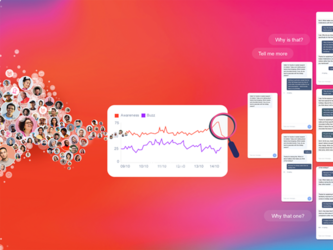Adverts are human. Why do we treat them as if they're not?
One area of market research which often seems to come under fire is estimating advertising effectiveness, pre-launch. Part of the problem rests in how you chose to define ‘effectiveness’. “More sales” is a fairly common definition. But even within this narrow scope, identifying the ingredients of success in an advert – the bits that drive sales – is difficult.
Harder still is taking a winning formula and applying it to the same effect in a different ad. The minute we find a concept that works and we clone it, we see the positive effect either being lost or reversed. The advertising recipe is never straightforward – art directors and copywriters can never be sure of the result until the cake is baked.
From our early days in copy testing, we were discovering just that: we tested a series of metrics trying to understand which ones best correlate with advert likeability. Being funny and entertaining? Having a clear, memorable message? Being informational as well as persuasive? All of the above? And how much is too much of any one thing?
“Adverts, therefore, are complex and unique things. Instead of rationally analysing them and going through our tick boxes, we need to get to know them first”
George Tsakraklides
It turned out that none of these metrics were accurate predictors of audience appeal or propensity to buy. Every advert has its own x factor, and this is because every successful advert needs to work its magic in its own unique way – influenced by the specific product it needs to sell, the target customer demographic, the brand legacy and culture of the company behind it all, as well as hundreds of other social and cultural factors that have determined a big part of the advert’s own unique “DNA” before it has even been conceived.
What this means is that each advert is defined within its own bubble: the unique sphere of context within which it lives and breathes. Now here’s the tricky bit: although the bubble is transparent and we can see all the parts inside, the parts themselves mean very different things within that bubble. Outside the bubble, they lose that specific meaning.
A skull image means something very different on the label of a drain cleaner than it does on a trendy t-shirt. And both will get different reactions in different countries, and by different age groups.
Adverts, therefore, are complex and unique things. Instead of rationally analysing them and going through our tick boxes, we need to get to know them first. We must understand as much as we can about the semiotics at play within the advert’s own market and among its target audience – as well as within the brand and strategic marketing campaign it forms a part of.
The best way to do this is through minimally invasive observational, almost ethnographic, research methods that are based less on science and more on empathy. In a metrics-obsessed and deadline-driven industry this will always be a challenge.
But as long as there is a constant supply of advertising campaigns having to go back to the drawing board, there will be a place for advertising research that treats adverts like humans: spending time with them, helping them to grow, to integrate into the world and to resonate with their audience.
George Tsakraklides is associate director of MM-Eye

We hope you enjoyed this article.
Research Live is published by MRS.
The Market Research Society (MRS) exists to promote and protect the research sector, showcasing how research delivers impact for businesses and government.
Members of MRS enjoy many benefits including tailoured policy guidance, discounts on training and conferences, and access to member-only content.
For example, there's an archive of winning case studies from over a decade of MRS Awards.
Find out more about the benefits of joining MRS here.













0 Comments